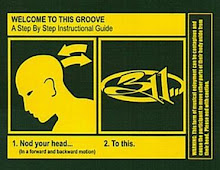Since they inserted this line without any documentation, I searched and searched until I found an article by Ferrara where he attributed this information to the Congressional Budget Office (CBO). I looked at all kinds of reports from the CBO, but I could not find any documentation to support this claim, so I turned to the Internal Revenue Service (IRS). I found a report on 2006 taxes that helped clear up my dilemma.
What I uncovered in this report is that the top 50% of earners pay 96.89% of taxes and the bottom 50% pay 3.11% of taxes. With a federal budget of $2.7 trillion, the bottom 50% paid $83.97 billion in taxes and the top 50% paid $2.616 trillion.
That sounds completely unfair and unjust until you see that the bottom 50% of earners have only 12% of the overall income share and that overall wages rose 1.9% (the lowest since World War II) compared to the 12.8% rise of corporate profits (the largest share of any year on record). 2006 was the first time ever that corporate profits have captured a larger share of the income growth in a recovery - 46% - than wages and salaries have.
The division between the wealthy and the middle class was one of the contributing factors to the the Great Depression (Rush Limbaugh may claim that it was due to government meddling and the Smoot-Hawley Tariff Act of 1930 and nothing else, but I'll stick to the facts from historians like Howard Zinn), and the conventional wisdom of that time was that a balanced budget without social services would help us get out of it. That didn't work and then FDR came into office and presented the New Deal. Due to timing and the historical era, the New Deal didn't fix all of the problems, but it certainly helped.
I heard John McCain say he wanted to put a freeze on government spending at the debate last week, while Barack Obama has been proposing increased infrastructure spending in order to create jobs through public works programs and alternative energy exploration. These programs come with the caveat of safer roads and bridges and hopefully a decrease on our dependency on fossil fuels. I'm sure McCain will put out some sort of economic proposal (I waited all day yesterday for it), but it will only be a safe plan so that he doesn't upset the House Republicans and basest element of his party (government bad!).
According to economist John Maynard Keynes, government debt during economic slowdowns is not bad because it keeps consumption levels high. Keynes also approved of taxing the wealthy because it keeps their money in circulation instead of in the bank. There have been many challenges to Keynesian economics over the years, but it seems that his philosophy is extremely poignant now. Whereas, the economic philosophy of Milton Friedman (the one introduced by President Reagan as he read Friedman's book on the campaign trail in 1980) has seemingly let us down.
Economic philosophy and policies can be argued ad nauseam, but the one thing that is evident to me is that the American economy will need a little assistance from the government in the not too distant future. When the pendulum swings to the right, it has got to come back left eventually - and eventually is now.
Considerable information and data pulled from:

No comments:
Post a Comment